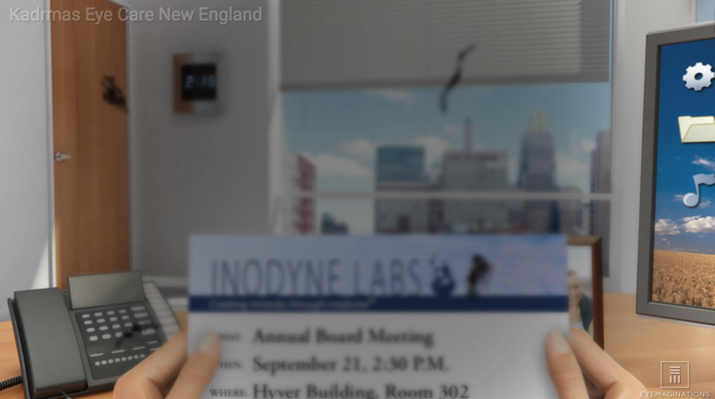8 Diabetic Retinopathy Symptoms & When to See an Ophthalmologist | Diabetic Eye Disease Month11/1/2018
8 Symptoms of Diabetic Retinopathy Before we cover the symptoms of advanced diabetic retinopathy, it is important to know that it is possible to have early stages of diabetic retinopathy and not have any symptoms, clues, or awareness of its development. Often symptoms of diabetic retinopathy start later, in the third and fourth stages of the disease, when vision changes may be irreversible and permanent. As such, all people living with diabetes should have an annual eye exam by an ophthalmologist who specializes in diabetic eye disease, regardless of whether any symptoms are present. Through special tests, an expert ophthalmologist can detect signs of diabetic eye disease, including diabetic retinopathy, before any noticeable symptoms develop and vision changes are detected. Now let’s get to the symptoms of diabetic retinopathy. If you have diabetes and you have not had regular eye exams since your diagnosis, your diabetes and blood sugar are not well managed or controlled, or you have been living with diabetes for some time, you should understand the symptoms of diabetic retinopathy. If you experience any of the following eight symptoms of diabetic retinopathy, you should contact your ophthalmologist immediately for a thorough eye exam:
These symptoms could signify advanced stage diabetic retinopathy, progressing diabetic retinopathy, or a vision-threatening emergency such as retinal detachment and should be taken seriously. They commonly occur in or affect both eyes. To see how diabetic retinopathy affects vision, visit these vision simulators from the American Academy of Ophthalmology: When to See an OphthalmologistIf you have diabetes, you should see an ophthalmologist who specializes in diabetic eye disease right away if you experience any of the symptoms of diabetic retinopathy listed above. Any vision change could mean your diabetes is affecting your eyes. Early detection and treatment can save or preserve vision.
If you have been diagnosed with diabetic eye disease, you may need to see your ophthalmologist more frequently for monitoring and treatment. If this is the case, please heed the warning above and see your ophthalmologist immediately if you have any vision changes. If you have any questions or concerns about your eyes, your eye health, or diabetes as it relates to your eyes, it’s also a good time to see an ophthalmologist. The more you know, the better you can take care of your eyes. Finally, it bears repeating one more time: You should see an ophthalmologist who specializes in diabetic eye disease every year for an annual, comprehensive eye exam, even if you are not experiencing any symptoms or vision changes. You ophthalmologist will be able to examine your eyes for changes that you may not be able to detect. In addition to looking for signs of diabetic retinopathy, your ophthalmologist can look for signs of other complications of diabetes such as glaucoma and cataracts. If you need to see an ophthalmologist who specializes in diabetic eye disease for any reason, please call our office at 508-746-8600 to schedule an appointment with one of our diabetic eye disease specialists: In the remaining two posts in this diabetic eye disease series, learn who is at risk of developing diabetic eye disease and how diabetic eye disease can be prevented or controlled. Comments are closed.
|
EYE HEALTH BLOGCategories
All
Archives
July 2024
|
|
Kadrmas Eye Care New England
55 Commerce Way, Plymouth, MA 02360
14 Tobey Road, Wareham, MA 02571 133 Falmouth Road (Rt 28), Mashpee, MA 02649 |
Phone Number:
1-508-746-8600 Hours: Monday through Friday — 8 AM – 4:30 PM |


 RSS Feed
RSS Feed
